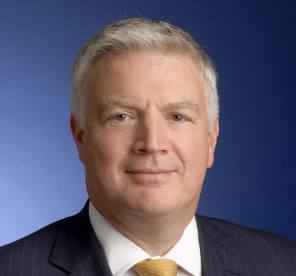

The Institute and Faculty of Actuaries has called on the regulators to overhaul scam prevention rules and promote advice in order to create better confidence in pensions and spark more consumer saving.
In its response to the The Pensions Regulator and the Financial Conduct Authority (FCA)'s joint consultation 'Regulating the pensions and retirement income sector', the professional actuaries' body called for a commitment to tackle and identify potential scams faster.
The institute stated currently trustees face criticism and penalties from The Pensions Regulator retrospectively if they fail to permit a transfer, even if a scam is suspected by the trustees or the FCA.
What The Pensions Regulator should be doing is make it clear that they would not act against trustees who delay transfers where the FCA is investigating potential fraudulent activity, the actuaries stated.
Colin Wilson, immediate past president of the Institute and Faculty of Actuaries, said: "The current system is intended to act in the interests of the consumer, but it is slow and unwieldy with the two regulators' approaches being at odds.
"Specifically, The Pensions Regulator could provide greater clarity around the parameters for trustees wishing to delay transfers where potential fraudulent activity is being investigated.
"It is crucial that consumers believe their hard-earned pensions savings are safe and being well looked after by trustees with proper oversight from the regulator."
The body also called for a joint approach to better support adviser capacity and capability in the defined benefit (DB) transfer market and for a wider effort to promote the value of good financial advice.
Mr Wilson said co-operation was most needed at the point of transition between one regulator and the other.
For instance, he said the point at which The Pensions Regulator-regulated occupational pensions switch to FCA-regulated ones remains risky.
Mr Wilson welcomed the regulatory requirement for financial advice on DB transfers of pensions worth more than £30,000 but said such advice was only effective if the cost and quality of it are appropriate.
He said: "If that advice is not appropriate or cost-effective, the legislation only serves to pass risk and cost from sponsors to members (and responsibilities from one regulator to another).
"This could have an adverse impact on members and advisers rather than the protection that is intended."
Finally, while the FCA has come out with an explanation of the boundary between guidance and advice, those providing guidance, particularly employers, are still fearful of straying into advice, according to the actuaries.
They said this issue needed to remain under review by both regulators.
The institute also called for a more positive approach to messages about pension saving overall, with The Pensions Regulator and the FCA addressing the tone and content much more positively to improve confidence in pensions.
From a public policy perspective, the institute argued neither the regulators nor the government has demonstrated a clearly articulated, long-term narrative for how they envisage the future of retirement.
Mr Wilson said: "Whilst automatic enrolment has been a great success thus far in getting more people to save, it is unlikely that current savings levels will be able to match the kind of income in retirement that DB pensions would have afforded.
"Trying to understand whether your retirement pot will be sufficient when the time comes can be complex and challenging.
"The Pensions Regulator and the FCA have a key role to play in helping to improve the public perception of good financial advice and guidance, not just at retirement but at key points throughout the customer journey, in order to boost confidence in the round."
Henry Tapper, who runs pension consultancy First Actuarial and founded Pension Playpen, said the institute's approach to pension scam regulation was spot on.
He said the FCA finds it hard to stop scams quickly because many happen offshore, using unregulated investments, therefore a closer working relationship with The Pensions Regulator and trustees would help.
He said: "Where trustees see reason, they should be able to report to the FCA, get a common sense response and then inform The Pensions Regulator that they are holding back the transfer.
"This is common sense, but it is not what happens at the moment. Well done to the institute for working this out."
Mr Tapper also said the institute was right to point to the capacity of employers to give guidance on workplace pension rights.
He said: "The FCA and The Pensions Regulator should work together to see how a more robust guidance definition can be established to allow employers to speak with staff about pensions without risk of being deemed to have given advice."
The Pensions Regulator did not want to comment on an ongoing consultation.
carmen.reichman@ft.com



